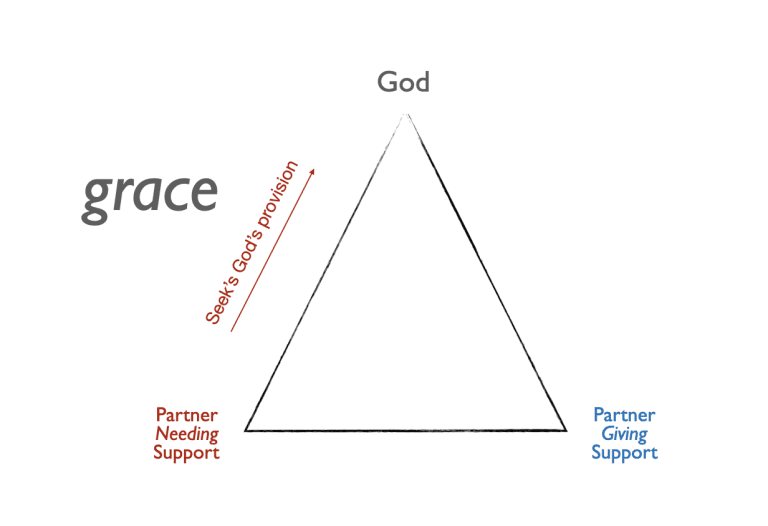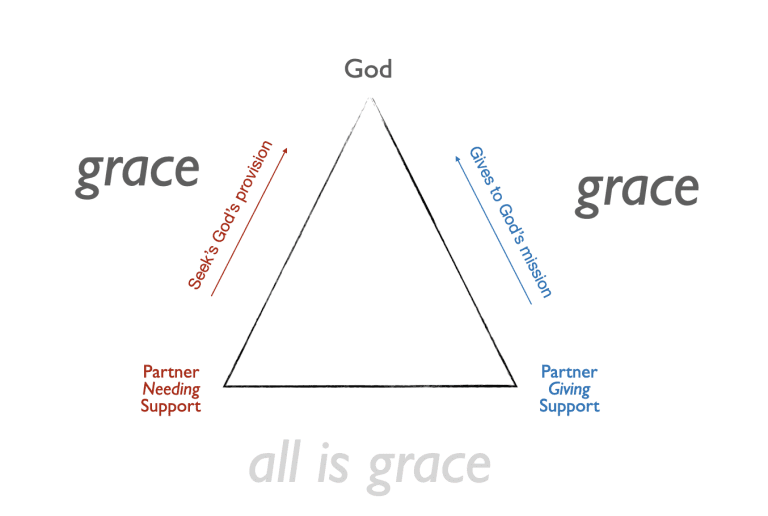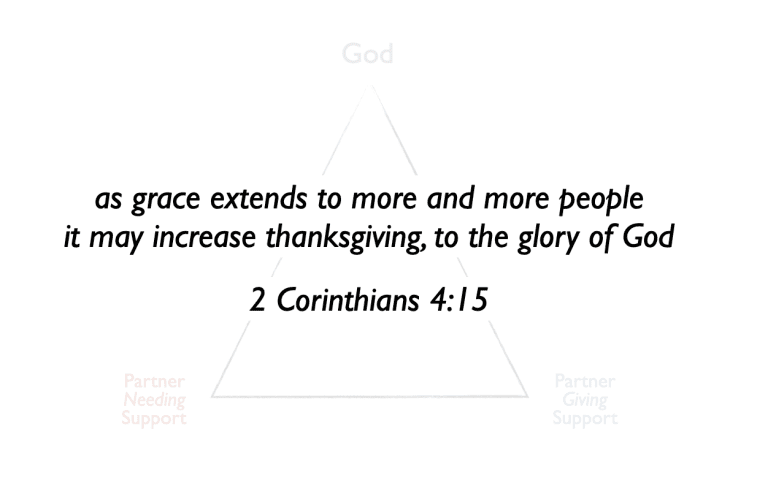“What is your theology of support raising?” Ugh. Why did my friend have to ask that question? Didn’t he know I’m a theologian?
But the truth was this: he wasn’t asking whether I thought the Bible said anything relevant to support raising. He was asking what I had internalized about the Bible’s teaching. My friend wanted to know my practical theology of support raising.
To wrestle with this question, we do well to reflect on important works such as Henri Nouwen’s A Spirituality of Fundraising. (BTW, check out Part One of this series concerning shame and support raising.)
Honoring the God Who Provides
In Nouwen’s little book, he offers a biblical vision for support raising, one that’s unlike anything I’d heard before. He first observes a common but flawed perspective people have when it comes to fundraising.

They suppose that it’s a transaction between two people where one person (the donor) gives to another person (the one asking). Nope. That’s fundamentally mistaken, says Nouwen.
I’d also add this: not only is it mistaken, but it’s also problematic for your heart and ministry. This conception of support raising opens the door wide for shame (discussed in the previous post). We make ourselves vulnerable to varied sorts of lies that cloud our view of ourselves and other people.
What actually happens in biblically-sound support raising?
The diagram below illustrates how God redefines or reorients the process. We first must recognize that we partner with God and one another. No one accomplishes God’s mission unless they are equipped and guided by God.
We have no mission independent of God. It is not even the case that two people partner together independently of God. No, they can join in partnership because God has invited us to be his partners in realizing his Kingdom’s purposes.

On the left side, we see the partner who needs support (e.g., prayer, money, counsel). This partner looks to God for provision. Only God ultimately provides what we need for life, flourishing, and ministry.
On the right side, we see the partner who gives support (e.g., prayer, money, counsel). This partner also looks to God. But, in this instance, (s)he looks to see how God is calling them to steward His resources. He wants people to use His resources in order to accomplish His mission.
In short, one gives to God, who then turns around and provides for another. The “donor” does not primarily give to an individual or organization. Likewise, the recipient does not primarily receive from another person. Instead, it is the Lord who dispenses grace.
God is honored by all.
Honoring Both Partners
In reality, all is grace in this process. What do I mean? The word “grace” simply means “gift.” Those receiving financial support understand how they receive a gift in this process. However, they’re not the only ones who are blessed.
The partners who give financially and prayerfully are blessed. It is a privilege for such givers to be allowed to join in God’s work.

Does this make sense to you? It certainly challenges my normal way of thinking. Consider the following passages. Paul quotes Jesus himself in Acts 20:35,
“It is more blessed to give than to receive.”
Then, in 2 Corinthians 8:1-5, Paul writes:
“We want you to know, brothers, about the grace of God that has been given among the churches of Macedonia, for in a severe test of affliction, their abundance of joy and their extreme poverty have overflowed in a wealth of generosity on their part. For they gave according to their means, as I can testify, and beyond their means, of their own accord, begging us earnestly for the favor of taking part in the relief of the saints— and this, not as we expected, but they gave themselves first to the Lord and then by the will of God to us.”
Honor in the Body
This perspective of support raising and giving makes even more sense if we have a biblical understanding of the church. Are we not a body?
Notice how Paul links honor with the mutual support of church members:
The eye cannot say to the hand, “I have no need of you,” nor again the head to the feet, “I have no need of you.” On the contrary, the parts of the body that seem to be weaker are indispensable, and on those parts of the body that we think less honorable we bestow the greater honor, and our unpresentable parts are treated with greater modesty, which our more presentable parts do not require.
But God has so composed the body, giving greater honor to the part that lacked it, that there may be no division in the body, but that the members may have the same care for one another. If one member suffers, all suffer together; if one member is honored, all rejoice together. (1 Corinthians 12:21-26)
Accordingly, when we honor others (by supporting them), we too rejoice in their honor.
Contrast all this with frequent (and sub-biblical) notions of support raising. Too often people feel ashamed to ask for money because they feel like beggars. In fact, people often criticize missionaries by calling them “beggars.”
This is a form of public shaming that dishonors the Lord’s plan to bring the church together in unity for the sake of the gospel and Christ’s mission in the world.

–––––––––––––––––––––––––––––––––––––––––––––––––––––
Note: Of course, many cultural factors should affect how people raise support. Check out these 5 tips for Raising Support in Honor-Shame Cultures.












